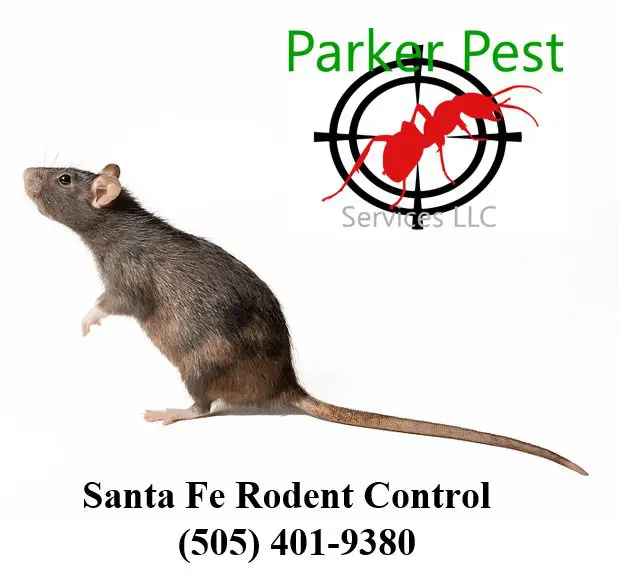Your Santa Fe Next Door Neighbor Has Rat Problems – Here’s Your Action Plan On How To Resolve the Issue

The rat, and more especially the Norwegian and Brown varieties of the rat, is one of the most troublesome pests. It’s common knowledge that rats are highly versatile critters. They have a keen sense of smell and hearing and impressive abilities in climbing, jumping, swimming, and burrowing. When environmental conditions are favorable, the rat population can quickly expand, resulting in significant property damage.
For this reason, any sign of a rat infestation should be taken seriously, and prompt action should be taken in response to it. You have arrived at the right place if you have observed that your next-door neighbor has rats and are interested in learning what you can do to stop them from entering your property.
You will find helpful information in this article on how to deal with rats coming from the house next door, as well as some of our suggestions on how to make your home inhospitable to rodents and other unwanted guests.
Why must rats be controlled?
An infestation of rats presents a wide variety of risks. The presence of vermin in a home may be exceedingly inconvenient and even dangerous to the occupants’ health. In addition, several illnesses are known to be spread by rats, and some of these diseases can have devastating effects on human health. Keeping this in mind, it is imperative to point out that it is the legal obligation of every homeowner to rid their property of any vermin or other unwanted guests.
- To better understand the importance of rat management, we have compiled a list of the most common forms of harm that rats may cause to humans and the property they own.
- Rats are known to be carriers of several hazardous infections, including Salmonella (which causes food poisoning) and Weil’s disease, which is a severe infection that, in people, can potentially be fatal.
- They get their nutrition from human food sources and have the potential to contaminate food, water, and surfaces used for cooking.
- Scratching and nibbling on furniture, water pipelines, and electrical wires are just a few ways rodents may damage property (the latter may even cause an electrical fire hazard).
- Their propensity for chewing has been known to disrupt essential utility services, including the electricity supply, and influence traffic signal systems’ operation.
Even if the list covers only some of the potential outcomes of a rat infestation, we hope that we have given you a solid enough cause to act as soon as you discover the very first indications of the rodents. This is true even if the pesty rats are in your neighbor’s garden.
What attracts rats to your house
It is usually preferable to take preventative steps in advance to keep rats away rather than having to combat an infestation while it is already continuing. Rats can cause a lot of damage to a building. Therefore, it is essential to take preventative precautions. Because of this, if you want to stop rats from getting near your yard and house, you need to be familiar with the primary characteristics that encourage rodents to settle on a particular property.
The following are some of the things that lure rats into your home:
- Food: Rats are omnivores, so they can be enticed by a wide variety of food sources, whether left out in the open or just simple to get to. Rats can become a problem when these food sources are freely available.
- Water: Any source of water supply, including broken pipes, hoses, and taps, as well as birdbaths and pet bowls, can provide a rat with an easy means to slake its thirst.
- Shelter and Warmth: The warmth and comfort of houses can look attractive to rats when looking for a warm and safe place to nest, breed, and hide from other animals. Rats constantly look for a friendly and safe place to do these things.
- Nesting materials: Rat nests are often cluttered with things like shredded paper, dried plants, cardboard, and other types of pliable materials.
- Rats may receive their food from vegetation such as fruit trees in your yard, houseplants, seeds, and other vegetation types. Rats can utilize vegetation as nesting material or as a pathway to easily access your roof.
- Rats consume everything, even food that other animals have partially digested. Your home is more likely to be infested with rats if you have trash cans or animals, especially if you leave them unattended.
- Entry points: If your house or fence has a lot of open access points, you are making it easier for rodents and other pests to get onto your property. Rats are an example of this.
Now that you know what causes rats to assemble, you need to take steps to safeguard your property against the invasive pests that cause so much difficulty. On the other hand, if you have already seen indications of a rat infestation on your neighbor’s property, you will most likely be required to take more significant actions to deal with the matter.
Are you experiencing problems with an invasion of pests?
In the fight against vermin, you don’t need to go it alone. Instead, hire a skilled pest specialist!
Call us at 505-401-9380 – What should I do if my neighbor has rats?
Before we get into what you can do if your neighbor has rats, we need to clarify that if you are a renter, you must go to your landlord first. If you are a homeowner, you may skip this step. Removing a pest infestation from a rental property is under the purview of the landlord under the common law principles. Even if the vermin are coming from a house next door, it is the landlord’s responsibility to eliminate the issue because it hurts the rental property and the occupants.
Therefore, before you try to manage the matter, you should alert your landlord about the rat infestation in the neighbor’s house and allow them to handle the situation from there on out.
On the other hand, if you are a landlord or the owner of a property that is located next to a residence that is plagued by the presence of rats, you should follow these steps:
- Have a courteous discussion. Even if you may have observed rats scurrying from your neighbor’s house or just seen the indicators of their existence, this does not guarantee that your neighbor is aware of the rats. The first thing you should do is have a conversation with your neighbor. Confront them in a kind manner and explain your predicament.
- Put a stop to any potential entry points. Block all possible entrance points and holes in your home while you wait for your neighbor to act. This includes your fence, garage, basement, attic, and cellar.
Employ the services of a qualified pest control business. If your Santa Fe neighbor does not act, you should contact a pest control specialist, like the Santa Fe pest control experts at Parker Pest Services.. They will be able to analyze the situation, repel the rodents to the greatest extent feasible, and advise you on what activities you can take to prevent rats from returning in the future. Notify the department of environmental health that is responsible for your local government. It would help if you tried other options before turning to this one. However, if the issue continues to exist and you believe the current condition threatens the health of humans and the environment, you should get in touch with your local council. They will examine it and determine the next course of action.
Meanwhile, it would help if you worked on making your home less appealing to insects and other pests. For example, if there is no reason for the rats in the house next door to come over to yours, then you won’t have to deal with them.
How to keep rats away
You may apply specific steps to make your house less appealing to rats, even if you have decided to contact your local authorities or hire a pest control business directly. You can do this even if you have decided to call a pest control company.
After you have learned the most effective method for removing rats from your home and the factors that bring the vermin inside, it will be simple to take the proper steps and ensure that your yard does not include anything that may attract rats. This will immediately lessen the likelihood of your house being invaded by the rats in your neighbor’s residence.
The following are some suggestions that might help you rat-proof your home:
- Eliminate possible sources of food and water by not storing food on your kitchen counter, since this might attract unwanted pests. Put an end to the practice of feeding birds, or at the very least, cut back on the amount of junk food you offer them. Remove any potential water sources, such as birdbaths and bowls for pets. Do not leave food for your pet outside, and ensure the bowl is removed and washed once your pet has eaten.
- Maintain a clear path through your garden: Maintain a regular cutting schedule for your lawn and remove and discard any leaves or fruit that have fallen to the ground as soon as possible. It will help if you store your firewood logs in an elevated location that is far away from the property. Keep a regular cleaning schedule for your gutters.
- Use natural deterrents such as peppermint oil, chili oil, black pepper, onion, or cloves to prevent rats from invading your garden. The odor of those things is offensive to rats. Therefore, they will go to great lengths to avoid them.
Rats are good at remembering the routes that take them to their food and water sources. However, if you prevent them from gaining access to these items, you will have rodent-proofed your home and decrease the likelihood of dealing with your neighbor’s rat infestation.
Takeaways
In Santa Fe, like everywhere else, prompt rat control is crucial, as rats pose serious health hazards to people and can inflict significant property damage. Rats are mainly attracted to food and water sources, shelter, waste, and clutter.
If your Santa Fe, NM, neighbor has rats, try talking with them first and if they don’t take measures, contact your council or an exterminator. A neatly maintained garden, correctly stored food, and sealed gaps in property structures are some things that make your home rat proofed. The last and most important step is to hire a rodent control professional like the pros at Parker Pest services.
